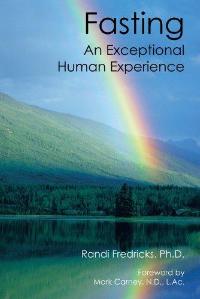Pages: 546
Fasting
An Exceptional Human Experience
Since prehistory, fasting has been used in various ways as a means of
transformation. As a spiritual practice, it is the oldest and most common form
of asceticism and is found in virtually every religion and spiritual tradition. In
psychology, studies have suggested that fasting can alleviate the symptoms
of some psychiatric conditions, including depression and schizophrenia.
In medicine, fasting is one of the most promising therapies, with research
suggesting that fasting can cause certain drugs, such as chemotherapy, to
work better while reducing drug side-effects. Hunger striking, sometimes called
political fasting, may be the most powerful application of fasting. Proof of this
occurred in 1948 when Gandhi’s hunger strike caused millions of Hindus and
Muslims in India to cease their fighting. As a practical guide, Randi Fredricks,
Ph.D. provides detailed information on the different types of fasting, where
people fast, the physiological process of fasting, and the contraindications
and criticisms of fasting. Using existing literature and original research, Dr.
Fredricks focuses on the transformative characteristics of fasting in the
contexts of psychology, medicine, and spirituality. The relationship between
fasting and transpersonal psychology is examined, with a focus on peak
experiences, self-realization, and other exceptional human experiences.
Dr. Fredricks demonstrates how fasting can be profoundly therapeutic,
create global paradigm shifts, and provide personal mystical phenomena.





